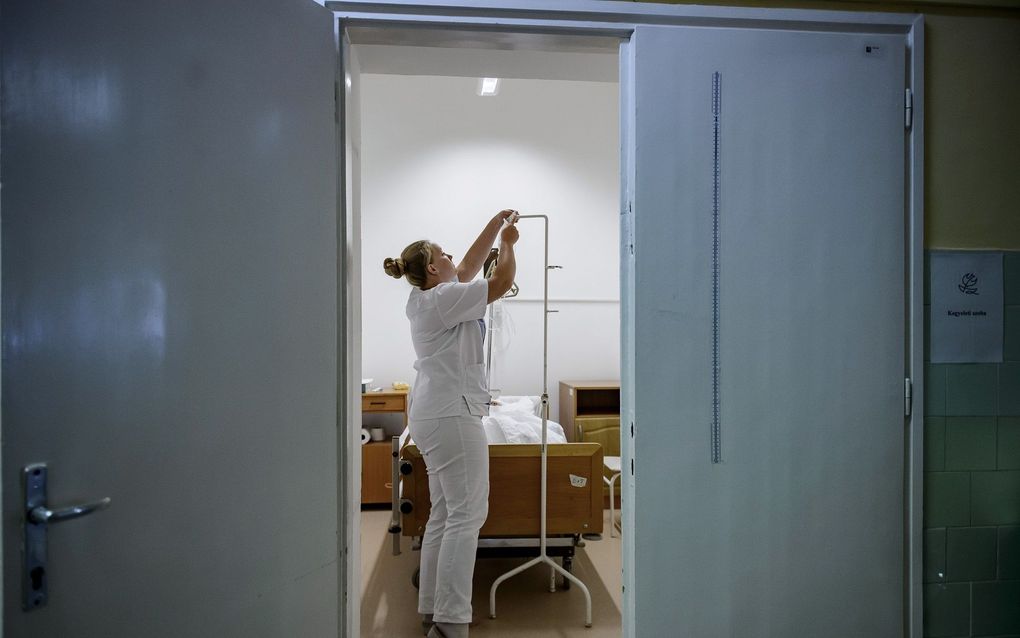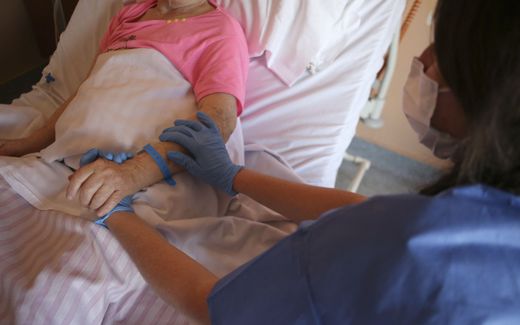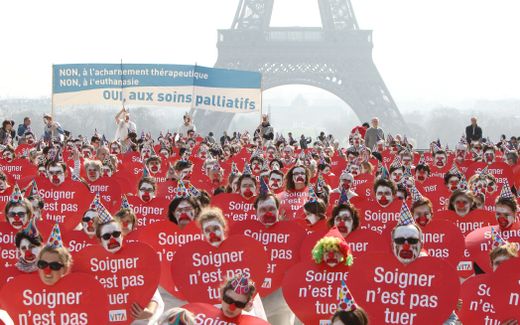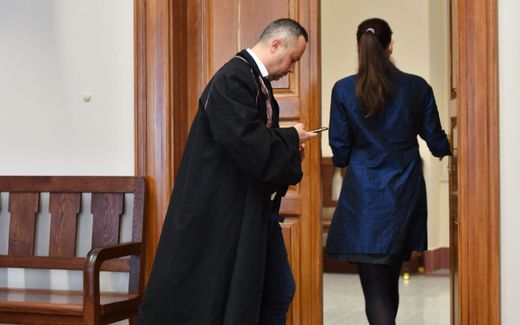French End-of-Life commission wants better access to palliative sedation

A healthcare professional prepares an infusion at a hospice department of a hospital in Hungary. Photo EPA, Peter Komka
Western Europe
The evaluation commission on the End-of-Life issue in France presented its findings last Wednesday. One of their suggestions is to give terminal patients better access to palliative sedation.
The committee's mission was to evaluate the so-called "Clays-Leonetti law" from 2016, in which the rights of people at the end of their lives are established. It consists of rapporteurs Olivier Falorni, a former socialist and member of the social liberal MoDem party, Caroline Fiat from the leftist LFI party and Didier Martin, a deputy from the central liberal Renaissance party. Together, they recommend the development of palliative care. That is reported by La Croix.
Shortening of life
One of their recommendations is to increase the offer of palliative sedation. The practice reduces the consciousness of a patient to deep sleep. The goal of palliative sedation is to reduce suffering and pain. However, it can lead to a shortening of life, although this is not its primary target. In this sense, palliative sedation differs from euthanasia, La Croix points out. By death through euthanasia or assisted suicide, the primary objective is to cause death. That means that the idea that palliative sedation is a passive or hidden form of euthanasia is incorrect, the newspaper writes. "For caregivers in palliative services, the distinction between "let die" and "make die" is essential."
At the same time, palliative sedation is uncommon in France because there are many requirements for someone to be eligible for it. Currently, only patients who are expected to die within a few hours or days are eligible for it. In addition, several healthcare experts must give the green light for it to be applied.
Therefore, even though the End-of-Life commission is careful in its suggestions because of the lack of research on the topic, it recommends developing the practice, "in particular to make it possible to accelerate the process when the agony lasts too long."
Active assistance in dying
At the same time, Olivier Falorni pleads for an increase in sedative drugs if the patient stays alive for more than three days in the sedative state "in order to prevent it from lasting an unreasonable time." At the same time, he and his fellow rapporteurs deny trying to find a way to legalise active assistance in dying.
The committee pleads for more investments in the palliative care sector to make it more attractive, develop training and review hospital pricing. It also stresses the importance of awareness campaigns.
Related Articles









